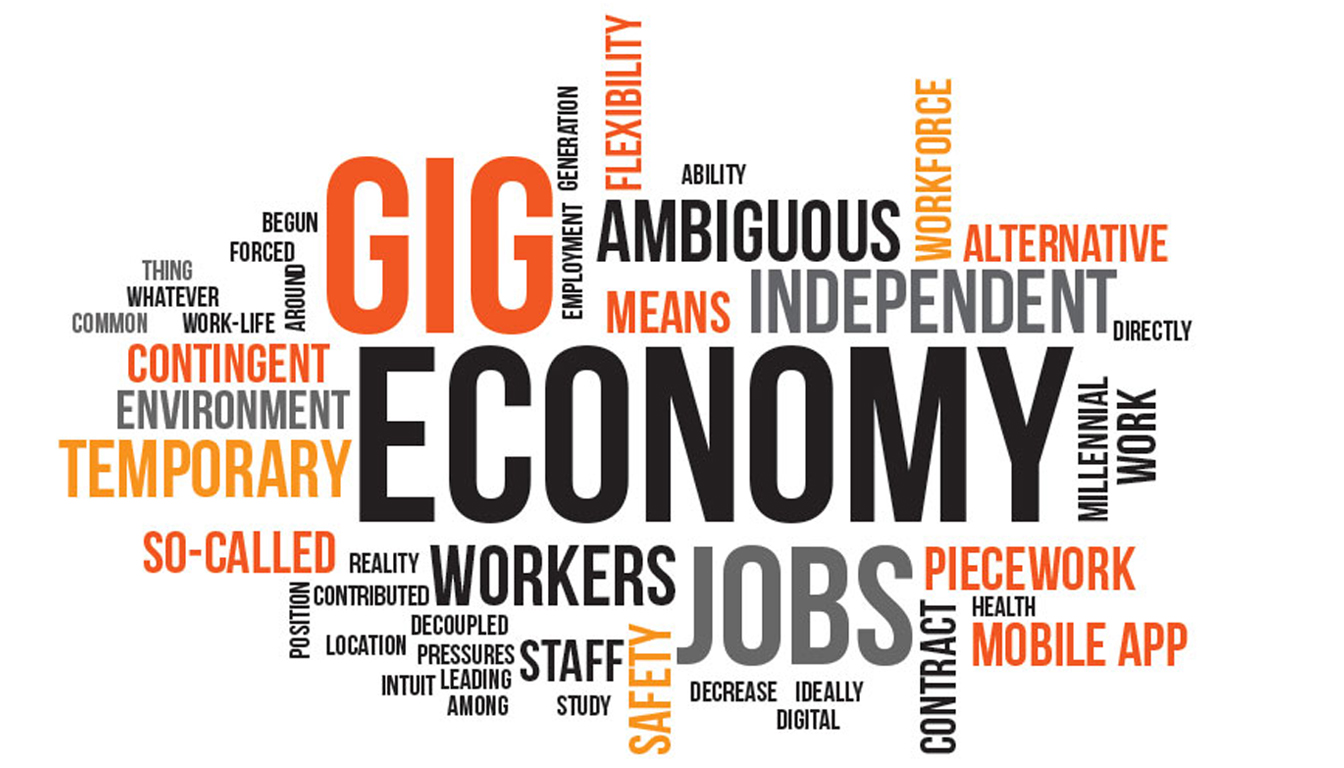The gig economy has immensely transformed the working patterns of people. With short-term arrangements, freelance gigs are becoming a storm. This working lifestyle allows individuals to control their schedules, choose their projects, and work with various clients around the globe. Not only individuals but even businesses get access to diverse talent and demand. Yet, it has some challenges with it. Navigating this ever-changing landscape requires a deep and precise understanding of its nuances and criticalities by analyzing examples of gig workers. By understanding the diverse facets of the gig economy, individuals and businesses can gain the opportunity to address the challenges. Adapting to this dynamic work environment is key to success in the modern workforce.
Table of Contents
A Diverse Landscape of Gig Work
The gig economy is composed of wide work setups across different industries and skills. It’s a flexible job market where individuals engage in short-term, project-based tasks. This trend has grown with digital platforms connecting freelancers to opportunities. From creative examples of the gig economy like graphic design to technical tasks. Individuals tend to be attracted to the flexibility it gives them, allowing them to choose projects that align with their expertise and schedules. However, it also brings challenges, like job insecurity and lack of traditional benefits. Despite this, the gig economy continues to reshape how people approach work globally. Some of the most prevalent examples of gig work include:
Ride-sharing and delivery services
The transportation sector has revolutionized transportation and delivery services by leveraging independent contractors. Various companies offer these services such as Uber, Lyft, DoorDash, and Instacart. These companies use a wide network of individuals to offer easy and efficient solutions for people who are on the move or in need of short-term flexible work. However, this gig economy model has sparked debates about labor rights and job security for contractors.
Freelancing and Consulting
Online platforms are an important link between skilled individuals and clients. It connects the people in need of specific expertise. Platform example of the gig economy are Upwork, Fiverr, and Freelancer cater to diverse fields like writing, editing, design, marketing, and consulting. These freelancers showcase their talents through profiles, outlining their skills and experiences. Clients, in turn, can easily browse and hire professionals suitable for their projects. This serves as an online marketplace that helps to connect a global network. It allows collaboration without any geographical limitations of time and place.
Food Delivery
Do you remember how life was without the food delivery apps? These food delivery apps are necessary for our hunger and cravings to be answered. These examples of gig workers have revolutionized getting food on order. Gone are the days of waiting in cues; a simple tap on the app on your phone and your order is on your doorstep. This new culture benefits both restaurants and retailers, it helps them to get free from dependency on in-store customers. Especially after the major shift of the COVID-19 era, played an important role that ensured both business and individual needs should be fulfilled. The food apps such as Doordash Foods remarkably, the operational cost for establishments remains minimal. Instead of using in-house staff, Gig economy workers, signing up for one-off tasks, act as the intermediary, seamlessly connecting our cravings with the culinary delights we desire.
Sharing economy
Airbnb and Turo are new and engaging platforms that provide the power to people to transform their idle assets into income sources and this is the prime example of gig workers. Such as Airbnb, through this individuals can share their homes with travelers, and offer them a unique lodging experience. Turo, on the other hand, gives access to car owners to rent out their vehicles. By contributing to a more efficient use of resources. These platforms have helped the sharing economy, allowing anyone to participate as a provider. By doing so, users not only generate extra income but also foster a sense of community and connection.
Navigating the Gig Economy Responsibly
In the examples of gig economy, responsible navigation is crucial for workers and businesses. Communication, fair wages, and clear expectations create a positive environment. Prioritizing well-being and ethical practices ensures sustainable growth for all involved:
Workers
Diversify income sources
The income on each platform differs from the previous one, either it increases or decreases, and impacts the income. By spreading your skills and services on various platforms, you create a more stable base for your finances. Embracing multiple opportunities increases your adaptability, offering a safety net against economic uncertainties. It’s a strategic way to navigate the example of gig economy, promoting resilience and enhancing financial security.
Seek financial protection
When seeking finance it involves exploring all the health insurance, retirement savings, and all the additional benefits associated with it. Research all the health insurance plans, considering coverage, premiums, and network providers in the market. Assess your needs and financial goals to make informed decisions. Seek guidance from financial advisors or HR professionals to optimize your choices. Prioritize securing comprehensive health coverage and building a robust retirement fund. Taking proactive steps ensures a stable financial future and peace of mind.
Businesses
Establish clear policies
Creating clear and concise guidelines is crucial for gig workers to ensure smooth collaboration. Clearly outline expectations for tasks, set performance standards, and establish transparent communication channels. Specify payment terms, including rates, frequency, and method. Clarity reduces misunderstandings, fosters efficiency, and promotes a positive working relationship between employers and gig workers.
Implement fair compensation
As a business, you have to have fair compensation and an easy payment process for gig workers. This is to foster a positive working relationship between you and them. Provide clear competitive rates to attract skilled individuals and guarantee timely disbursement of earnings. Consistent and transparent payment practices contribute to a supportive and sustainable gig economy, promoting loyalty and encouraging top-tier talent to engage in meaningful and productive work.
Conclusion
The gig economy, a swiftly changing terrain, offers chances and hurdles. grasping its varied aspects and taking steps to handle it wisely lets individuals and businesses reap rewards while reducing risks. As technology advances and work arrangements grow more flexible, the gig economy is set to play a vital role in the future of work. Staying informed, adapting, and embracing the dynamism of gig work will empower participants to thrive in this evolving landscape. It’s a realm where seizing opportunities, embracing flexibility, and responsible navigation are key to unlocking the full potential of this transformative work model.




